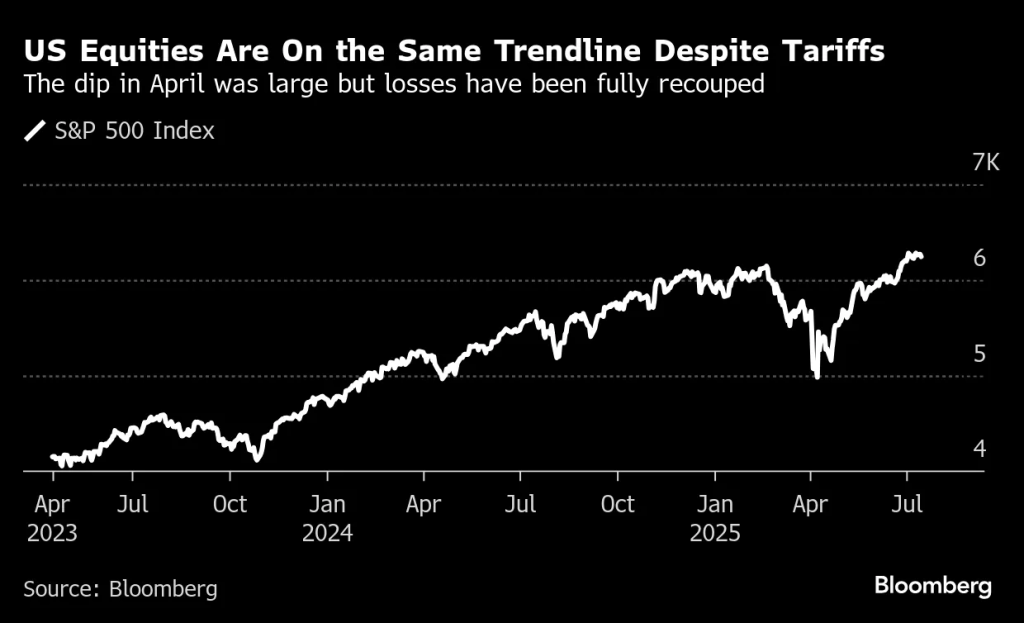- Alphabet rallied by 2.7% as traders geared up for its report on Wednesday.
- The US recorded solid consumer spending in June.
- Brazil and the EU are planning to respond if tariffs take effect in August.
Equities hit record highs on Monday, fueled by optimism for the Q2 US earnings season. Market participants are less concerned about tariffs due to strong consumer spending data. Still, uncertainty about tariffs remains a concern as the new August 1 deadline nears.
The second quarter earnings season has started, and traders are looking forward to reports from major companies. On Monday, Alphabet rallied by 2.7%, boosting other equities as traders geared up for its report on Wednesday. Experts believe earnings will increase by 6.7% from the previous quarter. So far, companies that have reported have either met or beat their forecasts. This already is a sign that the economy remains strong.
Investors have been optimistic about the US economy since last week, when data revealed robust retail sales. Sales in June jumped by 0.6%, compared to the forecast of 0.1%. This was a clear indicator of solid consumer spending during the month.

S&P 500 Index (Source: Bloomberg)
Initially, experts had worried about the impact of Trump’s tariffs on the economy. However, since April, the slowdown has been minimal. As a result, there is less panic around tariff threats. This has allowed equities to climb to new highs despite a looming August 1 tariff deadline.
Trump has announced higher tariffs on several major US partners, including Brazil, the EU, Japan, Canada, and Mexico. These tariffs will take effect in August if no trade deals are reached. Market reaction to these new tariffs has been muted this time.
Nevertheless, there is a growing risk of a global recession as some countries prepare to retaliate. Brazil and the EU are planning to respond if the tariffs take effect. A global trade war would further slow the US economy, potentially hurting equities.
Meanwhile, Fed rate cut expectations have fallen since upbeat inflation figures last week. Market participants are pricing the first cut in October. Prolonged high borrowing costs are bearish for stocks. Meanwhile, they will likely worsen the conflict between Trump and Powell. The US president believes rates should be at 1%. However, Powell is more concerned about a spike in inflation caused by tariffs. His calls for the Fed Chair to resign have raised questions about the central bank’s independence.



